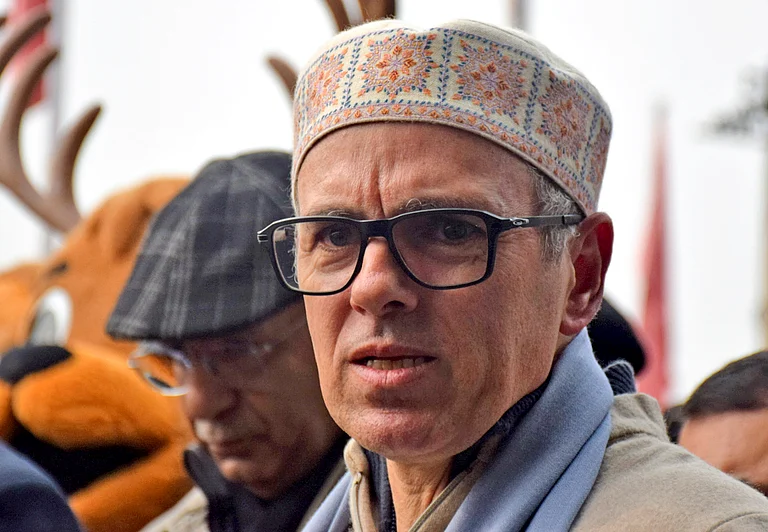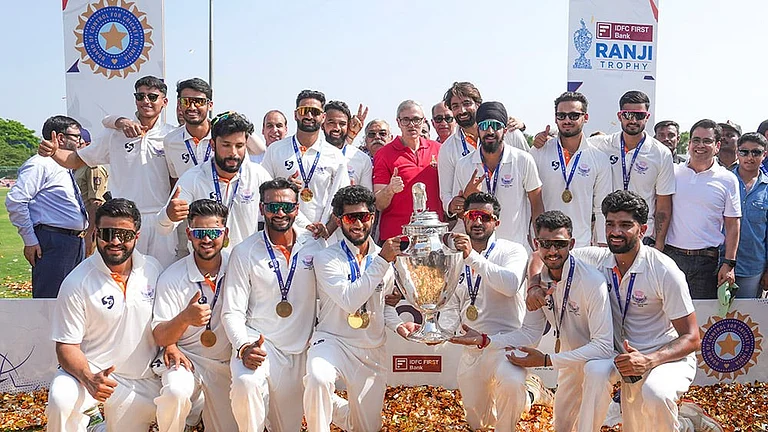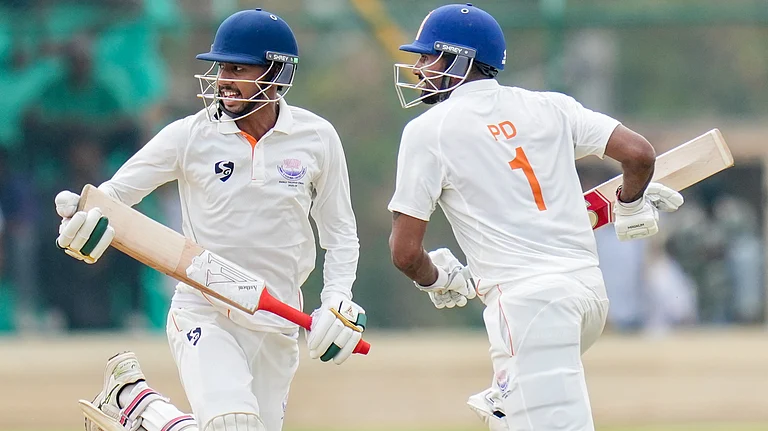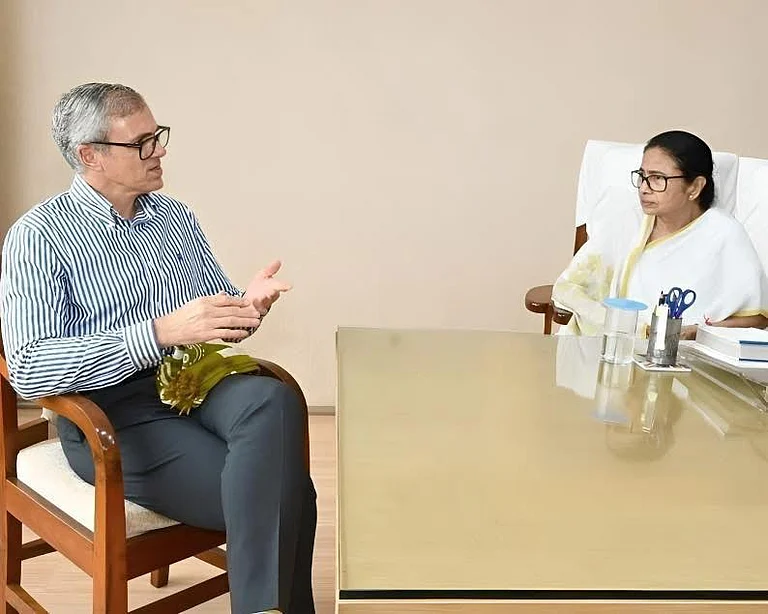After extensive negotiations, the National Conference (NC) and the Congress have finalised their seat-sharing arrangement for the upcoming Assembly elections in Jammu and Kashmir.
Senior Congress leaders KC Venugopal and Salman Khurshid travelled to Srinagar to negotiate with NC leaders. They held discussions with NC president Dr. Farooq Abdullah, vice president Omar Abdullah, and other NC leaders at Dr. Abdullah's Gupkar residence.
The two parties agreed on Tuesday evening to contest 83 seats together, with the NC fielding candidates in 51 seats and Congress in 32. One seat each has been allocated to the CPI(M) in Kashmir and the Panthers Party in Jammu. In five constituencies, both NC and Congress will field their own candidates for what they describe as a "friendly contest."
In an interview with Outlook on Tuesday evening, NC vice president Omar Abdullah said that this was the first time since the 1980s that the NC had entered into a pre-poll alliance with another party. He stated that the Common Minimum Programme between the NC and the Congress would be discussed post-election. “I am not going to address the Common Minimum Programme at this stage. It is a post-poll issue. We contest elections based on our manifestos, and I will not dilute my manifesto with the Common Minimum Programme,” he said.
Here are the excerpts
You have previously stated you would not fight elections in the Union Territory, indicating you do not aspire to lead a Union Territory. Do you now regret those statements?
It is not a matter of regret. One may come to the conclusion that it is better to correct the statement. If I am not willing to contest myself, how can I tell people that this Assembly is acceptable? It’s akin to saying I do not accept this Assembly but asking you to vote for it. That would be hypocrisy and betrayal.
But the counterargument is that you would be more powerful outside the government as vice president of the National Conference if your party comes into power.
I don’t believe that would have been effective.
Is your manifesto a continuation of previous manifestos?
No, it is not a continuation of the National Conference’s previous manifestos. While there are some recurring points, they reflect our unchanging political ideology. Autonomy for J&K remains our agenda. However, our manifesto is more comprehensive and far-reaching than before. It is a testament to my colleagues and the public who contributed suggestions. We received over 2,000 suggestions via emails and messages. I believe, as they say, imitation is the sincerest form of flattery. The fact that many points in our manifesto are echoed in the PDP’s manifesto is flattering to us.
Your manifesto includes a message from NC president Dr. Farooq Abdullah, noting that the situation in the Valley deteriorated from 1990 to 1996 before you brought governance and political autonomy. You also draw a parallel between the period from 2019 to 2024, following the abrogation of Article 370, and the earlier period. Why this comparison?
We are not only discussing the security situation but also governance. Governance has worsened. Progress indicators have declined. Therefore, comparing our governance period to theirs is reasonable. Under my tenure as Chief Minister, there was a steady decline in militancy. Now, incidents of militancy and deaths, including those of security forces, have increased. The evidence is clear.
The Union Home Minister has raised objections to your manifesto, even accusing you of changing names.
Our manifesto does not discuss changing the names of Shankaracharya or Hari Prabat. I challenge anyone to produce a paragraph from our manifesto indicating we plan to cancel reservations. We have stated that we will make the process fair and address any injustices. The Union Home Minister’s focus on our manifesto is a success for us and a compliment to those who drafted it. I encourage everyone to read it and identify where we mention name changes. I have reviewed the manifesto and found no such mentions.
The Congress has proposed a Common Minimum Programme if the NC-Congress government is formed. What would its contours be?
I am not addressing the Common Minimum Programme now. It is a post-poll issue. We contest elections based on our manifestos, which are already presented to the people. I will not dilute my manifesto with the Common Minimum Programme today, nor do I expect Congress to do so. Let our manifestos reach our constituencies and voters. We will address the Common Minimum Programme after the election results are in.
With the alliance with Congress, do you see the NC emerging stronger?
We have not had a pre-poll arrangement since the 1980s. This is the first time we have negotiated a seat-sharing arrangement. The National Conference and Congress have formed this alliance to leverage our strengths and advantages. Out of the 90 seats, only five will be contested on friendly terms, which signifies the success of the negotiation. Now, it is up to the voters.
Do you fear internal dissent within the NC after issuing the candidate list?
The BJP faced such issues today. Every political party experiences some dissent, especially after a long period of elections. I empathise with those colleagues expecting to contest on the National Conference ticket but unable to due to the seat-sharing arrangement. However, for the greater goal of keeping the BJP, communal forces, and those who have harmed Jammu and Kashmir in the past six years out, sacrifices are necessary.
Are you planning joint rallies with Congress leaders like Rahul Gandhi?
We hope Rahul, Priyanka, and Mallikarjun Kharge ji will come and campaign here. They have responsibilities in Haryana and other poll-bound states, but we hope they will join us in campaigning.



























